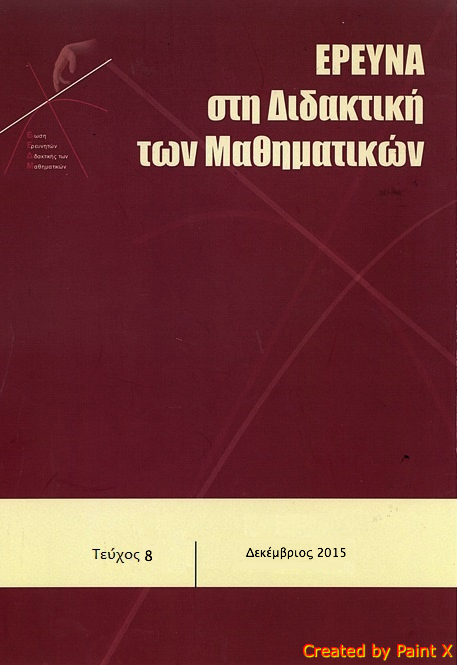EVALUATION IN MATHEMATICS: ASPECTS OF CONCEPTUALISATION OF TEACHERS IN PRIMARY EDUCATION

Abstract
The present study deals with the way primary school teachers conceptualize pupils’ assessment in mathematics and it develops on two levels. On the fi rst, that of the teachers’ community, it attempts to depict the main characteristics of this conceptualization, recognizing the essential role played by the professional apprenticeship in its formation. On the second level, considering pupils’ work assessment by the teacher as a particularly social but also subjective process, the study examines the pedagogical discourse of individual teachers, concentrating on the resources they draw on and the positions they adopt within this discourse with respect to assessing. For the purposes of the present study, the responses of 553 teachers to specifi c questions of a questionnaire (fi rst level) as well as the responses of a certain teacher to the questions of an interview (second level) were analyzed utilizing the Correspondance Analysis and the Hierarchical cluster analysis, as well as techniques of the Grounded Theory and the Systemic Analysis respectively. The results indicate the function of three mainly factors on teachers’ conceptualization of pupils’ assessment in mathematics: the teaching practice, the institutional framework and their personal and professional relationship with the subject matter. The way in which these three factors act and interact, as well as the effect of this action on the conceptualization of the assessment process differs from teacher to teacher. This is due to a number of social parameters and mechanisms which result to the co-existence of contradictory conceptualizations not only on micro but also on macro level.
Article Details
- How to Cite
-
Κλώθου(AnnaKlothou) Άννα, & Σακονίδης (Xaralambos Sakonidis) Χ. (2017). EVALUATION IN MATHEMATICS: ASPECTS OF CONCEPTUALISATION OF TEACHERS IN PRIMARY EDUCATION. Research in Mathematics Education, (8), 55–86. https://doi.org/10.12681/enedim.14240
- Section
- Articles

This work is licensed under a Creative Commons Attribution 4.0 International License.
Authors who publish with this journal agree to the following terms:
Authors retain copyright and grant the journal right of first publication with the work simultaneously licensed under a Creative Commons Attribution licence that allows others to share the work with an acknowledgement of the work's authorship and initial publication in this journal.
Authors are able to enter into separate, additional contractual arrangements for the non-exclusive distribution of the journal's published version of the work (e.g. post it to an institutional repository or publish it in a book), with an acknowledgement of its initial publication in this journal.
Authors are permitted and encouraged to post their work online (preferably in institutional repositories or on their website) prior to and during the submission process, as it can lead to productive exchanges, as well as earlier and greater citation of published work (See The Effect of Open Access).


